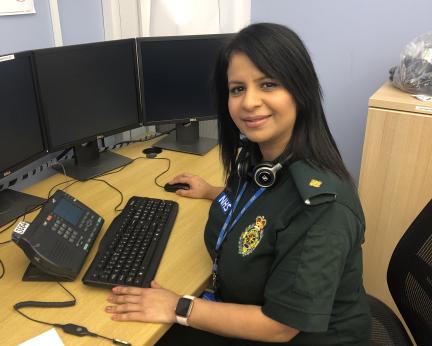I’ve always had a passion for helping others, which led me to nursing at a young age. After qualifying as a registered general nurse in 1998, I worked in a hospital setting and took on bank shifts in A&E to gain broader experience. During this time, I become interested in becoming a paramedic after working closely with them and ambulance technicians. Given that paramedic work wasn’t a traditional career in my culture, I had to convince my family that it was a fulfilling and worthwhile role, which I’m pleased to say I did.
I went on to complete a foundation degree in paramedic science from the University of Hertfordshire, qualifying in 2006. I began my paramedic career on ambulances and later moved to a fast response vehicle. After a brief return to nursing in 2010, I felt the pull back to the emergency sector and joined ambulance control as a nurse adviser, where I spent several rewarding years. Recently, I moved into occupational health, an area where I felt I could combine my extensive clinical background with a focus on preventive health and wellness in the workplace.





